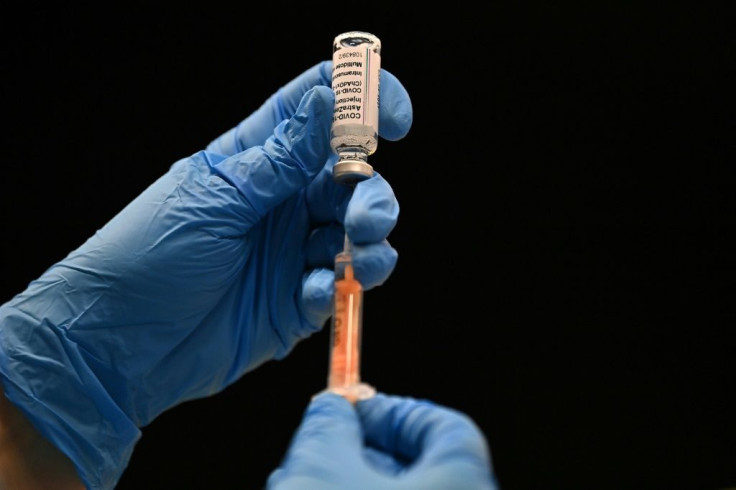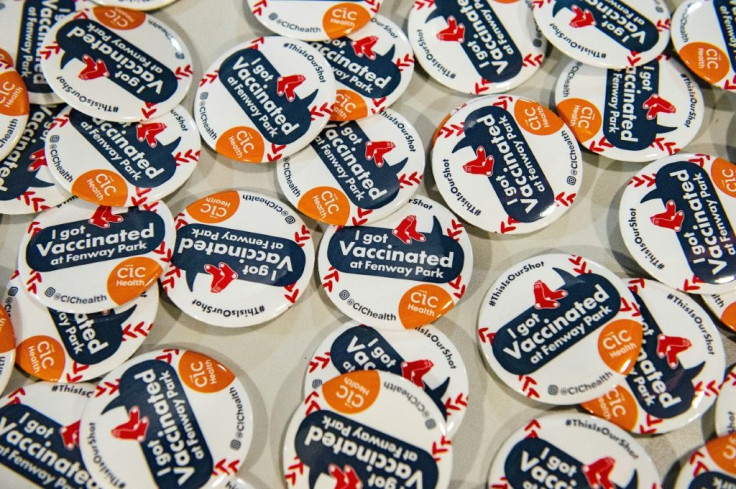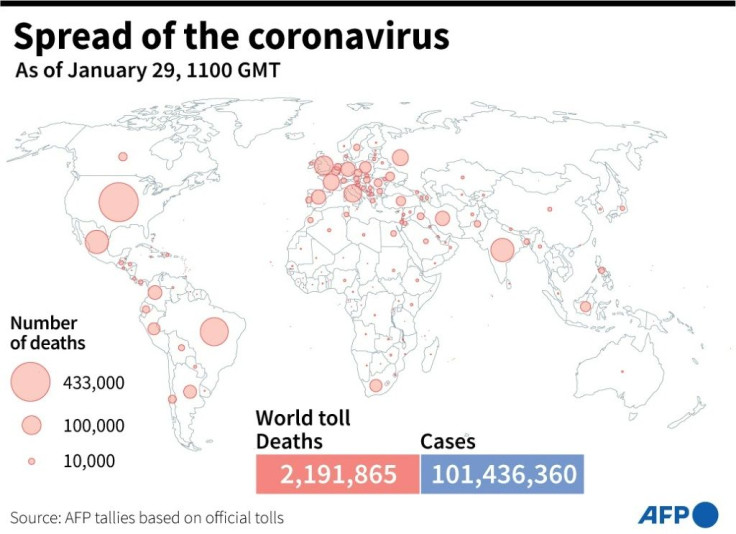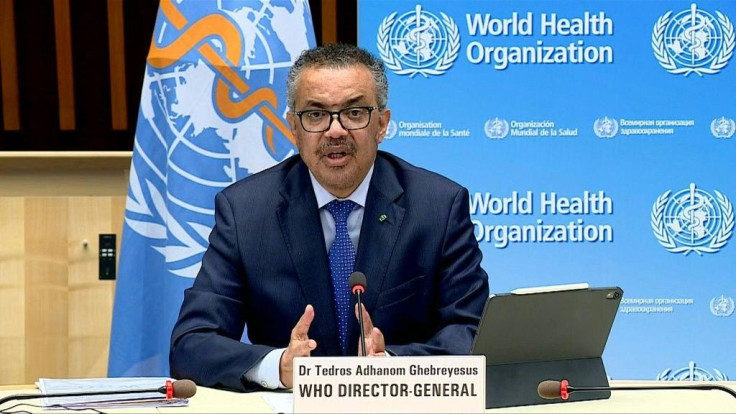EU Announces Progress In Vaccines Push, But Fresh Virus Protests
The European Union announced progress in its battle to get the vaccine doses promised it by drugs manufacturers, as protestors in several countries staged fresh demonstrations against their governments' action -- or inaction -- against the coronavirus.
In China, meanwhile, WHO experts visited the market in the centre of the country linked to the first known Covid-19 cluster, seeking clues about the outbreak of the pandemic.
EU Commission chief Ursula von der Leyen announced on Sunday that AstraZeneca would increase its coronavirus vaccine deliveries to the EU by 30 percent.

The British-Swedish company had announced last week that it could deliver only a quarter of the doses originally promised to the bloc for the first quarter of the year because of problems at one of its European factories.
But AstraZeneca, whose vaccine was authorised for use in the EU on Friday, has now agreed to send 9 million additional doses and "will start deliveries one week earlier than scheduled", Von der Leyen said in a tweet.
But she also acknowledged that February and March would remain "a difficult phase" for vaccine supply.

And Captain Tom Moore, 100, who won British hearts with a Covid-19 fund raising drive, was hospitalised on Sunday with the virus, his family said.

Several countries further tightened restrictions to try to stem the spread of the coronavirus.
France's borders have closed to non-European countries, but President Emmanuel Macron chose to step back from a imposing a third nationwide lockdown -- against the advice of senior scientific advisers.
But French Health Minister Olivier Veran told the Journal du Dimanche (JDD) newspaper on Sunday: "Everything suggests that a new wave could occur because of the variant, but perhaps we can avoid it thanks to the measures that we decided early and that the French people are respecting,"
Germany on Saturday barred most travellers from countries battling the new virus variants, a decision that affects people from Britain, Ireland, Portugal, Brazil, South Africa, Lesotho and Eswatini.

And a two-week ban on foreign travel took effect in Portugal on Sunday as the country grapples with the worst surge in Covid-19 cases anywhere in the world.
The authorities in Australia meanwhile did not hesitate to impose a snap five-day lockdown in Perth after the detection of a single case in the city of roughly two million people: a security guard at a quarantine hotel tested positive.

But protests against governments' handling of the crisis have been multiplying.
In Belgium, police detained more than 200 people taking part in two banned protests against anti-virus measures.
Polish police raided discos that defied restrictions on Saturday, using stun grenades and tear gas to clear dance floors.
In the Netherlands, which in recent days has seen violent protests against coronavirus curbs protesters Amsterdam police cleared out the city's famous museum square after some 600 people gathered there for an illegal protest.
Thousands of protestors marched through the Austrian capital Vienna to protest coronavirus restrictions there, ignoring a police ban on the march and many shunning masks and social distancing. The march was organised by the far-right FPOe party.
In Brazil, protestors marched in several cities Sunday to condemn President Jair Bolsonaro's handling of the crisis.
"The result of this mismanagement is more than 220,000 Covid deaths," Ruth Venceremos, an LGBTQ activist taking part in the protest, told AFP. "Enough with Bolsonaro -- impeachment now!"
Thousands of ultra-Orthodox Jews meanwhile defied Israel's coronavirus restrictions to attend a rabbi's funeral on Sunday.
The emergence of the new variants has further complicated the fight against the coronavirus, which first emerged in late 2019 in Wuhan before unleashing death and economic devastation around the world.
A World Health Organization team visited the Huanan food market in Wuhan as part of its fieldwork in a politically sensitive mission to investigate the origins of the pandemic.
Their visit is being tightly controlled, and the WHO has already lowered expectations of pinpointing the source of the virus, which is known to have infected more than 102 million people so far with over 2.2 million deaths.
In recent days, Chinese authorities have relentlessly pushed a positive narrative of heroism and decisive, swift action against the virus.
But it has faced criticism at home and abroad for its handling of the initial Wuhan outbreak and its lack of transparency.
© Copyright AFP 2024. All rights reserved.




















